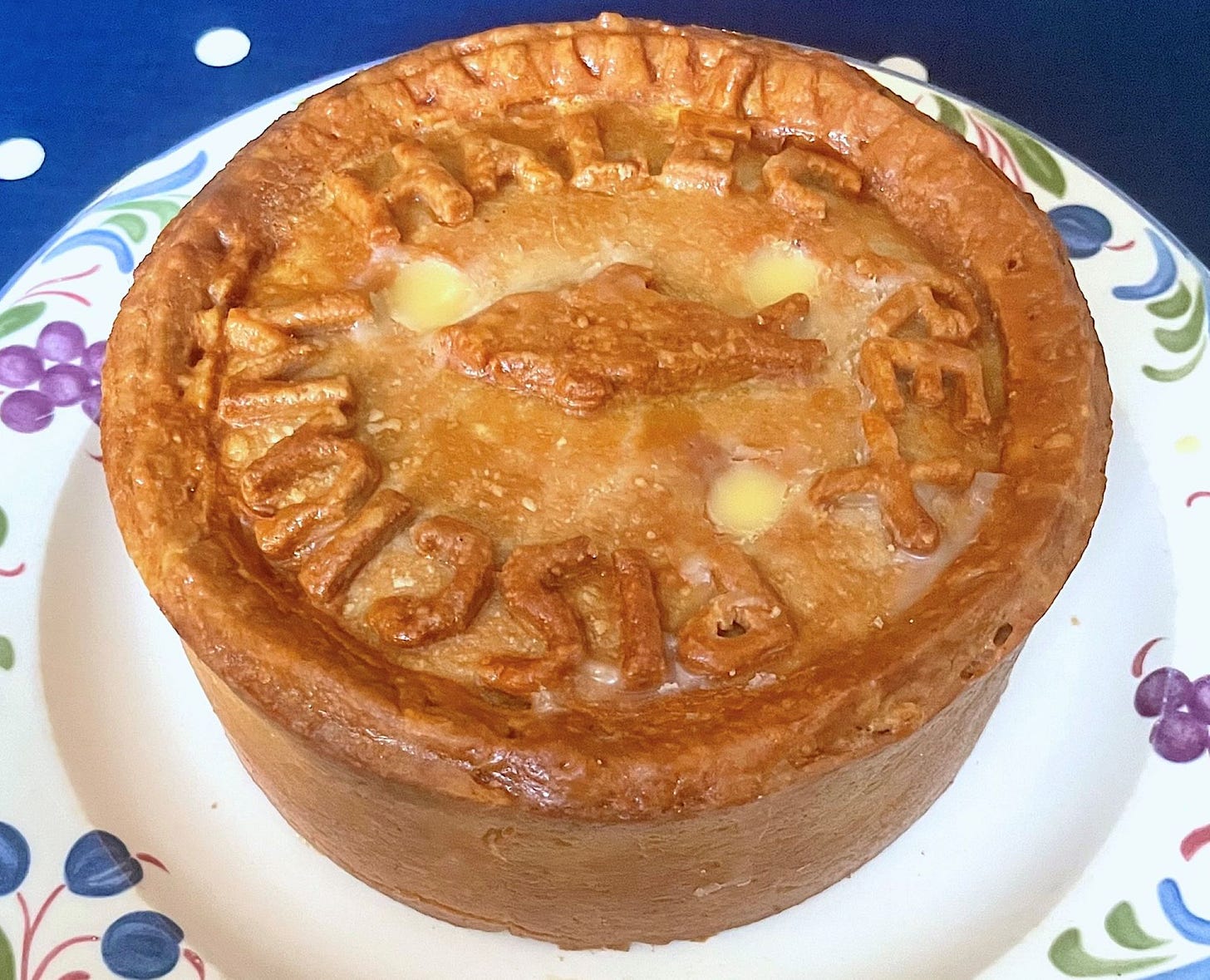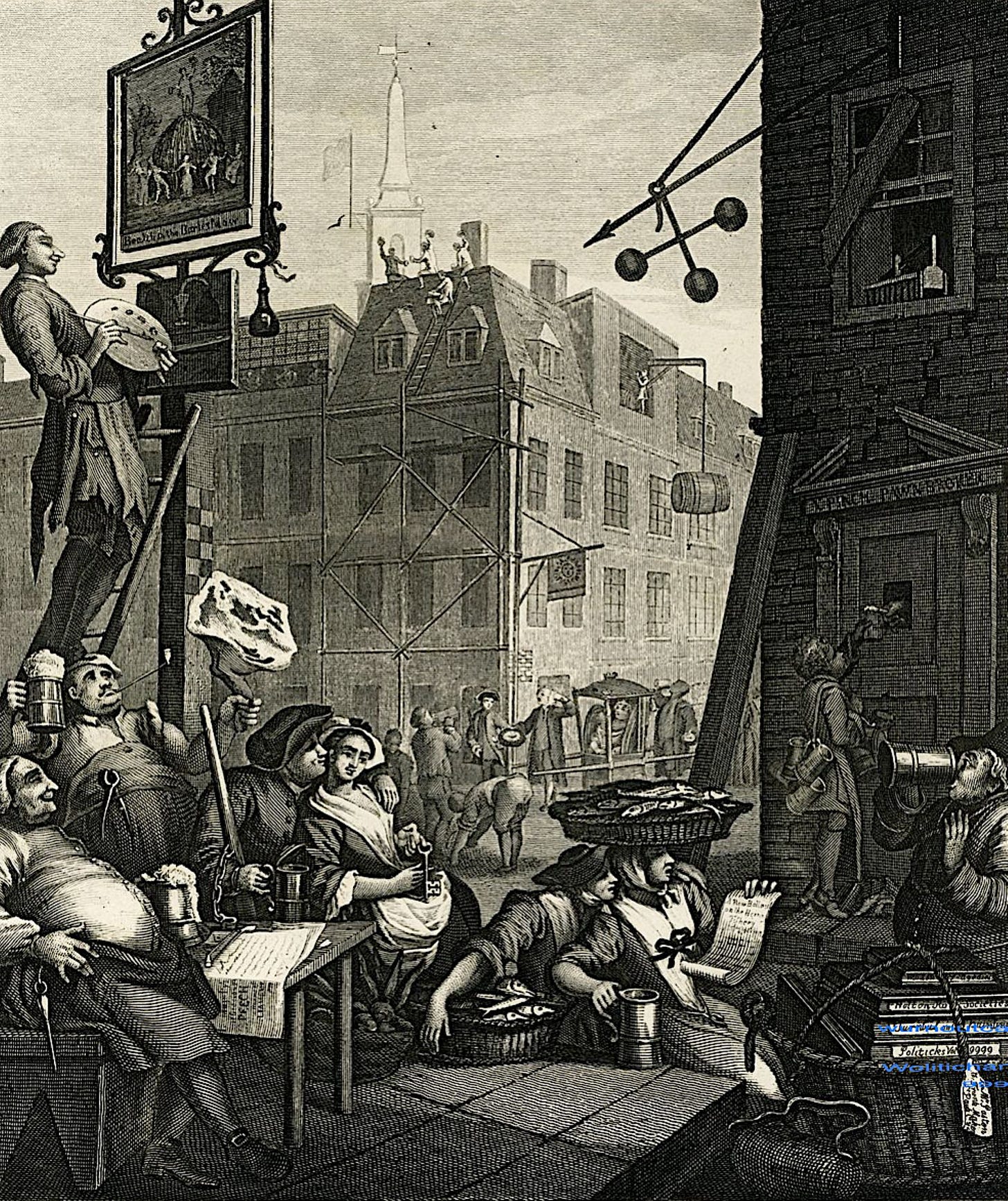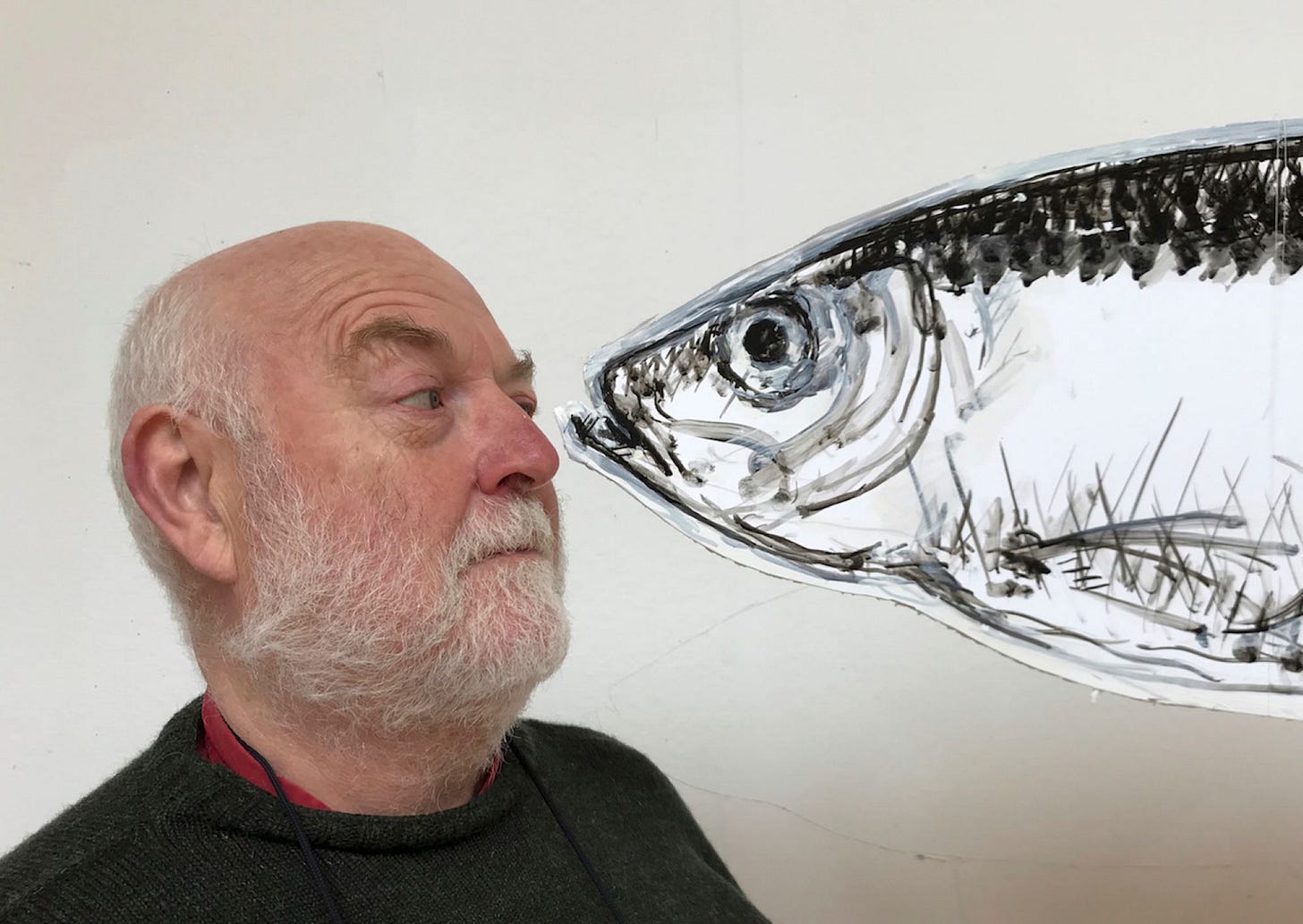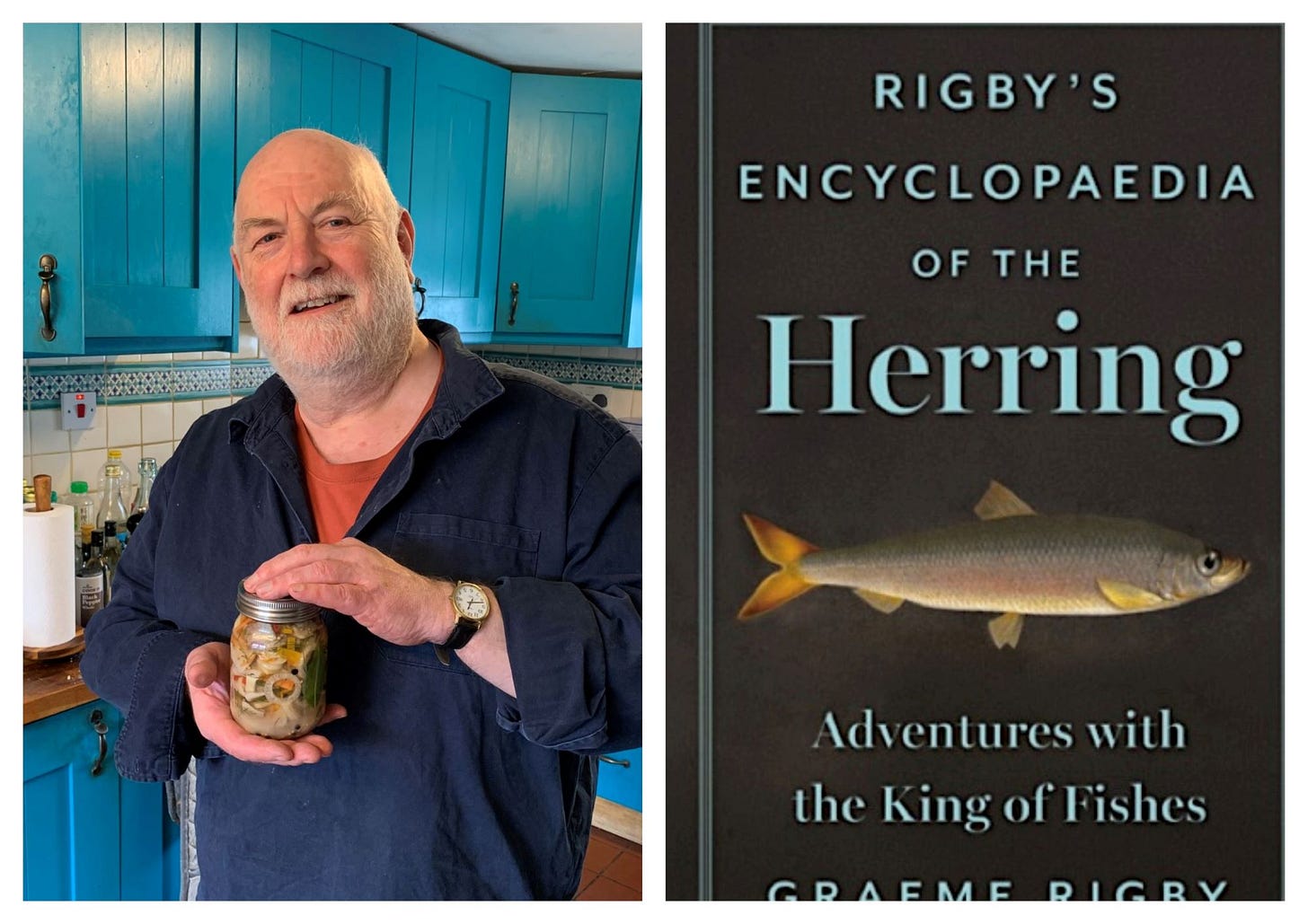Tasty new book makes case for the 'King of Fishes'
'Herripedia' man Graeme swims into print
You might never have given much thought to the herring – how tempting to call it the ‘humble’ herring - and in that respect you’ll differ from Graeme Rigby whose new book is out this week.
He has spent many hours on the tail of the fish species clupea harengus, tracking its evolution and casting his net wide to show the part it has played in our culture.
There’s nothing humble about the herring in his view, as you can see from the book title: Rigby’s Encyclopaedia of the Herring: Adventures with the King of Fishes.
“An all-in-one deep dive into the Atlantic herring and its far-reaching dominions,” is how publisher Hurst describes the handsome hardback.
But if you wanted to dive even deeper, there’s The Herripedia which spawned it.
Graeme’s infinitely capacious and ever-expanding online encyclopaedia now rises to the top of many a herring-related Google search.
This is a man who knows the fish and can make of it a tasty dish, as I found when he kindly stood me lunch at his home near Rowlands Gill, thereby demonstrating various preparation methods.
But anyone who gets under the skin of a subject understands that you can never hope to know everything, which is why The Herripedia keeps growing.
The book, on the other hand, is an absorbing distillation of what he has learned… so far!
Mulling over the origins of his fishy fascination, he recalls childhood days in Sussex when his mother would sometimes serve herring fried in oatmeal or baked with vinegar.
She would delve into a scrapbook of recipes inherited from his grandmother and great grandmother.
“It’s a beautiful thing which they filled with favourite poems before flipping it over and putting in recipes from the back. Sometimes the recipes were pasted over the poems.
“They were recipes my mum did. She was a good cook although I wouldn’t say I was always asking for herring.”
He does remember that a couple his parents knew would bring a gift of marinated herring back from Norway every year.
“I’d never tasted anything quite like it. This was absolutely the business and I used to rave about it when I was 12 or 13.”
You wonder if mysterious forces were at play when his grandfather gave him a book called My Life by Angus Watson.
“He was a grocer and he shared a Methodist congregation in Rothbury with my grandfather who had been postmaster before he retired.
“Watson was teetotal and my grandfather gave me the book because he wanted to direct me towards a teetotal role model.”
Graeme says he didn’t read it until quite recently and only then realised that Newcastle-based Angus Watson & Co. Ltd established the Skippers Sardines brand, canning and selling European sprats – also known as Baltic herring – sourced in Norway.
Under pressure from the French, who went to court in 1911 to argue that only European pilchards should be marketed as sardines, he was forced to drop ‘Sardines’ from the name.
A lengthy account on The Herripedia documents ‘The Great Sardine Litigation’.

Ryton-born Sir Angus Watson, incidentally, went on to co-own The Spectator magazine and for a time was deputy mayor of Newcastle, where he died in 1961.
Studying English at Cambridge University, Graeme didn’t warm to the wordy output of literary pioneers such as Sir Philip Sidney and Edmund Spenser.
“Couldn’t be arsed with it,” he confesses, adding that he’d felt “a bit of a hick” at Cambridge, assuming everyone to be more knowledgeable than him.
But when directed to the writings of 16th Century pamphleteers, his imagination was fired by a piece called Nashe’s Lenten Stuff or The Prayse of the Red Herring.
Thomas Nashe wrote it to thank the people of Great Yarmouth, where he’d lain low after a satirical play he’d co-written had upset the authorities, landing collaborator Ben Jonson in prison.
“It’s an amazing piece, full of praise for the red herring,” says Graeme. “I thought it was magnificent and it stuck with me.”
You’ll find a sizeable excerpt on The Herripedia, explaining how a Great Yarmouth fisherman had accidentally produced a red herring (a bit like a kipper although Graeme attributes that invention to John Woodger, of Seahouses, in 1843) by hanging herring in the sooty roof of his shed to dry.
“The weather was colde, and good fires he kept and what with his fiering and smoking, or smokie fireing, in that his narrow lobby, his herrings, which were as white as whales bone when hee hung them up, now lookt as red as a lobster,” recorded Nashe.
The fisherman and his wife had fallen to their knees, blessed themselves and cried “a miracle, a miracle”.

Nowadays a red herring is better known as a metaphor for a false trail than a tasty dish.
Graeme tells me how a rather unfunny red herring ‘joke’ likening red herrings to martyrs burned at the stake found its way into the writings of Shakespeare, Jonson and Nashe.
It was deployed to have a pop at the Lord Chamberlain, who could ban or censor plays, and supposedly explains how Shakespeare’s comical fat knight went from being Oldcastle to Fastolf and finally Falstaff.
The real-life Sir John Fastolf, says Graeme, had been accused of cowardice in battle against the army of Joan of Arc, although earlier he had triumphed in the 1429 ‘Battle of the Herrings’, preventing food destined for his troops from falling into enemy hands.
Graeme’s next step on the route to The Herripedia came in the late 1990s when he signed up for a radio production course at which everyone had to pitch a programme idea.
He suggested an investigation into why the Indian fish product known as Bombay duck was no longer available in the UK.
“They liked the idea and asked me to make the programme. I went to India and stayed for a week with Bombay duck fishermen. Brilliant!
“Then they asked for a series on preserved fish, Rigby’s Red Herrings. I did Arbroath smokies and lamprey pie. I went to the Lofoten Islands to do dried cod and I did red herring because it intrigued me.”
Ultimately, he was pleased with all the programmes except the red herring one.

“I just never got to the bottom of it so thought I’d carry on researching because it was fascinating stuff. That was when I came up with the idea of a herring encyclopaedia.”
For much of this century, up until retirement in 2018, Graeme was busy working with Newcastle-based Amber Films, but The Herripedia bobbed alongside.
And it grew as Graeme found more material, including a lengthy 1664 treatise called De Harengo by German doctor, philosopher and herring fan Paul Neucrantz who raved (in Latin) about “the most excellent good qualities and the greatest glory of the Emperor of Fishes”.
Graeme bought a photocopy from the British Library and then found someone willing to undertake the laborious task of translating it.
On The Herripedia you will learn of the herring’s place in art and literature.
There was a ‘herring poet’ in the 18th Century, the campaigning John Lockman who let rip in a pamphlet snappily entitled The Vast Importance of the Herring Fishery, etc, to These Kingdoms, as respecting the National Wealth, our Naval Strength, and the Highlanders.
William Hogarth, the engraver and satirist, depicted fisherwives with baskets of herring and you’ll find the fish in art galleries around the world.
And now comes this new book. The launch event at the Lit & Phil is sold out, as you’d expect from the promise of suitably fishy snacks - but the odd thing is that herring is not a favourite delicacy in the UK nowadays.
Smokehouses have been disappearing and most of the catch in our waters is destined for foreign consumers.
Graeme tells me fishing quotas have fallen to a few wealthy companies or individuals and most herring caught off the North East are likely to be landed in Holland.
There’s a section on quotas on Graeme’s website.
“They are transferable,” he says, adding that it may all seem wrong but there’s just no real market for herring in this country any more. “We don’t have the industry now for processing it and we don’t eat it.”
Ruefully he explains that cod, haddock and salmon, mostly farmed, are more favoured in most British households these days.
What would the armies of herring lasses who gutted the fish landed along our coast 100 years ago have made of that?

Graeme believes our attitude to the fish might be a hangover from the darkest of days when badly processed herring was shipped to the Caribbean as cheap food for slaves on the plantations.
That said, connoisseurs still relish a Craster kipper and at Eyemouth people still turn out for an annual Herring Queen Festival. Grace Gillie currently reigns, having been crowned in July.
And if there’s a case for the return of the herring as a popular dish, then it’s well made in Graeme’s kitchen where, in the interests of this article, a delicious lunch was served.
Graeme’s book is in the shops now and you can find details on the Hurst Publishers website.





